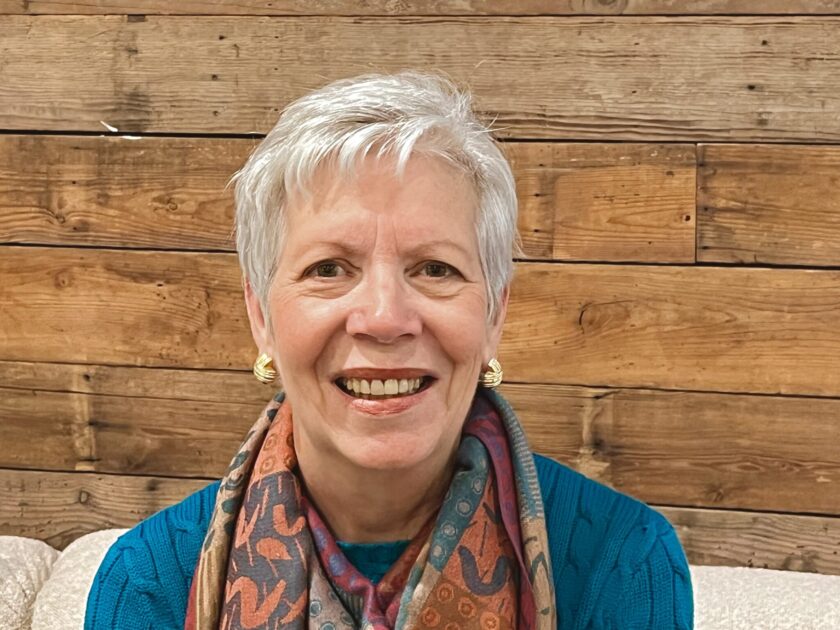At the end of the last few PPAI Expos in Las Vegas, we’ve made it a point to catch up with Paul Bellantone, PPAI’s president and CEO. The conversations cover his feelings about the show, usually as it’s being broken down around us (as was the case this year, too), and tap into larger themes regarding the industry and the economy overall. Check out our full conversation with Paul below (the real Paul, not the cardboard cutout on the show floor) and click here to read last year’s interview. Or, check out a roundup of all our PPAI Expo 2019 coverage here.
Promo Marketing: So, how are you feeling now that Expo is wrapping up for 2019?
Paul Bellantone: I feel good about the event because there was a real buzz on the show floor. I don’t know if you noticed people talking about it. There’s a sense of excitement. But, what’s even better than that, is that our numbers are proving now that it was actually a successful show. I know at the end of today they were up by 4, 5 percent over last year, which is really terrific.
PM: I feel like we have this conversation every year, so it must be steady growth.
PB: We are! And I think it’s because, we’ve seen trade show consolidation obviously in the marketplace, and more and more I think people are realizing that this is more than a trade show. It’s an annual convention. It’s where you make your connections, where you have discussions that you might not be having in other places. We’re also trying to affect that as well. I was just talking to someone at the American Marketing Association and the Sales and Marketing Executives International, we just kicked off a conference at noon today with them that they’re holding on our behalf. So that’s actually keeping people here longer, and may have gotten some people to come to the show who might not have come in the past. So, we’re excited about it.
PM: So, in 2019 for the industry overall, what are your goals and hopes?
PB: One of the things we’re finding more and more is that just because the industry is growing doesn’t mean all of the members are growing. I’ll give you an example of that. Just two or three years ago, large companies and small companies, which we define with $2.5 million and above and below, kind of split the business. So if the industry was $24 billion, $12 billion was done by the large and $12 billion was done by the small. We’re starting to notice that there’s a larger disparity. In fact, large distributor companies, I think, last year accounted for 61 percent of the business, and small companies 39 percent. What that’s leading to is an unevenness of growth. So, if the industry is up 5 percent, that doesn’t mean everybody grew 5 percent anymore. A lot of the larger companies grew double digits; smaller companies are struggling a little bit. So I’m hoping that this is the year that this turns around a little bit and the smaller companies have the ability through technology and education to really keep up with their larger counterparts.
Overall, I think the association is going to invest more in getting earned media here. Ad Age magazine was actually here. How cool was that? And that’s because of a relationship that we built through Advertising Week in New York and our Get in Touch! campaign, and they were actually starting to recognize us as an industry. Imagine that! One-hundred-and-something years old, $25 billion, and they’re finally going, “Wow, there’s an industry here!” So, that was terrific.
I think, from a member perspective, we’re going to see more private equity dollars coming in. We’re a highly fragmented industry that still has margins. And that makes us appealing to private equity dollars, and I think we’re going to see further consolidation on both the supplier and distributor side of the business.
PM: It seems that every time we have these talks at the end of PPAI, there’s an overall theme of the conversation. We’ve discussed the last election, consolidation. This year I wanted to talk to you about tariffs. Is that something that weighs on your mind at all in the promotional products industry. Or, right now, with the shutdown and the FDA and CPSC not operating, have you talked to people who that’s affecting?
PB: One of the publications actually had an article that was on how the shutdown was affecting [the industry]. It’s real. If someone isn’t spending money, somebody isn’t buying promotional products. I’m not as concerned about the tariffs. Not that they’re not going to affect pricing in our industry, but that is so publicly known and publicly discussed because it’s not just our industry. The automobile industry, the apparel industry and, really, almost all industries. So I think consumers are fairly aware of what’s happening as it relates. I don’t think there’s a buyer of promotional products whose industry isn’t being affected by tariffs. So I think that they get it.
My concern is the geopolitical consequences of uncertainty. Not a political statement! But every morning I wake up and I go, “Oh boy, what did he tweet today?” And I wonder how that’s going to affect the mood and the climate in business, and does that mean somebody isn’t going to do hiring today because they’re not sure of what’s going to be coming down the pike? I think our businesses and our members can survive in up markets. They can survive in down markets. I just think it’s hard for any business to survive in uncertain markets. More than tariffs, because tariffs may be a certainty, it’s the uncertainty that scares us.
PM: So what would you say encapsulates the mood of the promotional products industry for 2019? What would the theme of the year be for you?
PB: I’d say that our industry has the confidence to evolve. That’s something that I’ve been talking about throughout this week. It’s knowing who you are, knowing where you want to go and having the confidence to move forward and change your business and change your business model. I was at a session at Advertising Week in New York. And it was mature brands talking about how they deal with disruption, and one of the outcomes was you have to be rooted in who you are but have the confidence and courage to evolve, and I want to adopt that for this industry. We shouldn’t be scared to change and to move forward.



